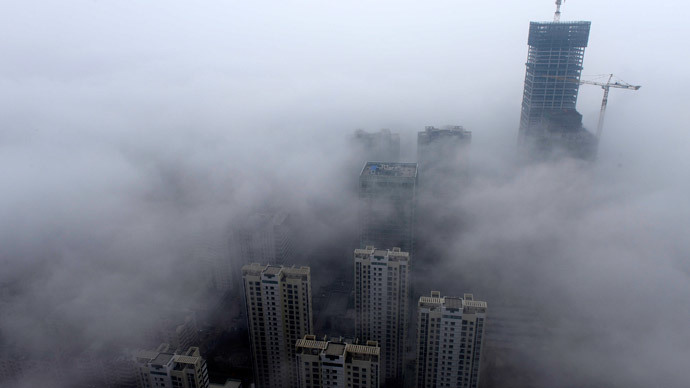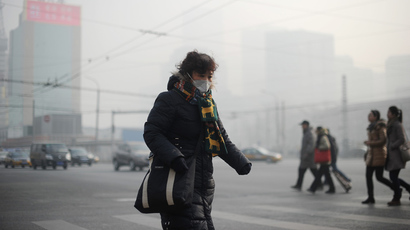Scientists liken Chinese smog to ‘nuclear winter’

Air pollution in parts of China is now so extreme it could lead to conditions similar to a “nuclear winter,” scientists say. The smog that covers the country has become so thick it is impeding photosynthesis, potentially disrupting China’s food supply.
China’s pollution problem is reaching crisis point, with acrid smog covering six southern provinces for the past week. Over the last few days a total of 19 cities have recorded levels of pollution drastically exceeding the World Health Organization’s (WHO) safety levels.
Beijing’s concentration of micro-particles small enough to enter into people’s lungs and trigger serious health issues reached 505 micrograms per cubic meter Tuesday. The WHO’s safe level is 25 micrograms per meter.
The toxic smog is having severe consequences, with aircraft being grounded across the country because of poor visibility, roads closing and a significant reduction in tourist numbers. An associate professor at China Agricultural University, He Dongxian, told the South China Morning Post that if these conditions continued, China will experience something akin to a “nuclear winter.”

Furthermore, she said an experiment in Beijing in recent months had shown a significant slowdown in photosynthesis (the process by which plants turn light into chemical energy). According to He Dongxian’s tests, chili and tomato seeds that usually take 20 days to sprout could take over two months to grow into seedlings.
"They will be lucky to live at all. Now almost every farm is caught in a smog panic," He Dongxian said, adding that the poor seedling quality would have a severe effect on agricultural output this year.
Beijing authorities have come under fire from environmental organizations this week for failing to activate a red alert – which requires schools to close to minimize the impact of the smog on the public.
"The officials are not proactive enough. They should listen to public opinion when setting the conditions [for the alerts],” said Greenpeace campaigner Huang Wei, adding that the authorities had not met the public’s expectations.
China’s smog problem has begun to affect its neighbors overseas. On Wednesday officials in Kumamoto prefecture in southwestern Japan issued a health warning to residents after a dramatic rise in air pollution levels. Authorities advised people to stay indoors and not to exercise outside.
Ministers from China, Japan and South Korea are set to meet in May to discuss ways to mitigate the rising levels of pollution in the region. China has been criticized by its neighbors for its excessive use of coal-burning power stations.















